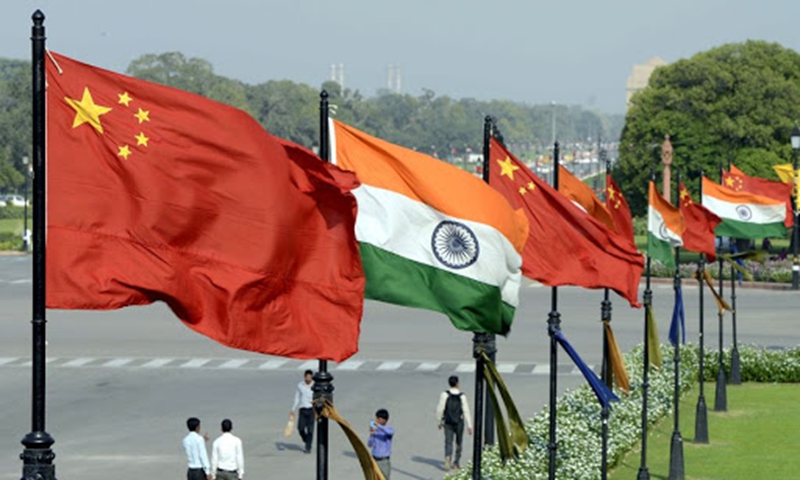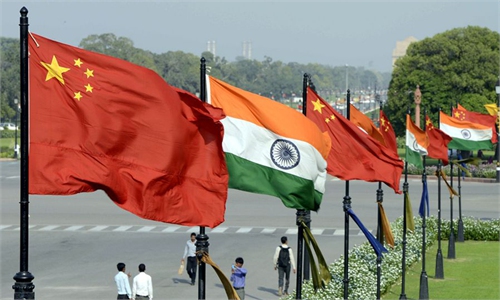
China-India
As the Indian military confirmed that reports on a new border clash are "factually incorrect," Chinese experts warned that irresponsible and habitual rumormongering by the Indian media will ultimately harm India's national interests, especially at a time when both sides are working on military disengagement.
Indian media on Monday claimed that Chinese and Indian troops engaged in a clash at Naku La in the north Sikkim border area on Friday, which resulted in injuries on both sides. There have even been reports claiming that at least 20 Chinese soldiers were injured.
The Global Times learned from a source on Monday that the news was fake, as there was no record of this incident in the Chinese People's Liberation Army (PLA) front line patrol logs.
In recent days, the focus of top military leaders on both sides has been the ninth round of corps commander-level talks, not a new border clash, and the two sides have not been involved in such clashes mentioned by the Indian media, the source said.
The Indian military also later made a clarification, saying that there was a minor face-off at the Naku La area of North Sikkim on January 20 and the same was resolved by commanders as per established protocols. "Media is requested to refrain from overplaying or exaggerating reports that are factually incorrect," the Indian Army's statement reads.
Chinese analysts said that Indian media organizations must have some motives to make these incorrect reports after the talks. Just a week ago, Indian media outlets hyped China's construction of a village in a "disputed area," smearing the construction that they claimed was built within Indian territory, which observers regarded as a move to stir anti-China sentiment.
Qian Feng, director of the research department at the National Strategy Institute at Tsinghua University, told the Global Times that it is possible that the Indian military did not want this event to disrupt the talks, but Indian media managed to get inaccurate information, so the Indian military was forced to make a response.
Indian media claimed that China suffered five times more casualties in the latest round in an attempt to show preparedness and valor. But fanning the flames and confusing people will in the end harm their own reputations and India's national interests, Qian said.
"I am afraid that the fake news is not just a pure media action, and I am not sure if India is deliberately picking a fight to provoke China,," Zhao Gancheng, director of the Center for Asia-Pacific Studies at the Shanghai Institute for International Studies, told the Global Times on Monday.
Media reported five days ago that India planed to deploy new patrol boats, aircraft and ammunition to the frontline. Indian Foreign Minister Subrahmanyam Jaishankar, stressing the country's political convergence with the US, said on January 12 that trust with China had been deeply damaged.
India wrongly believes that China is "encroaching" on its territory. On this premise, it creates lies and then makes its people believe the lies, and it incites hatred. Bilateral negotiations are likely stuck at a point where India has made tough and unreasonable demands, Zhao said.
Chinese Foreign Ministry Spokesperson Zhao Lijian confirmed at a routine press conference on Monday that a new round of military talks between China and India has been held and the two sides will release the relevant information as soon as possible.
"China always insists on a peaceful solution, but this cannot be accomplished by the will of one side alone... India should understand that in case of war, it will not be able to take any advantage," Zhao Lijian noted.
"India's policy is like walking a tightrope, pushing to the limit like Donald Trump," Zhao Gancheng said. "But if it doesn't work, they may back down."


